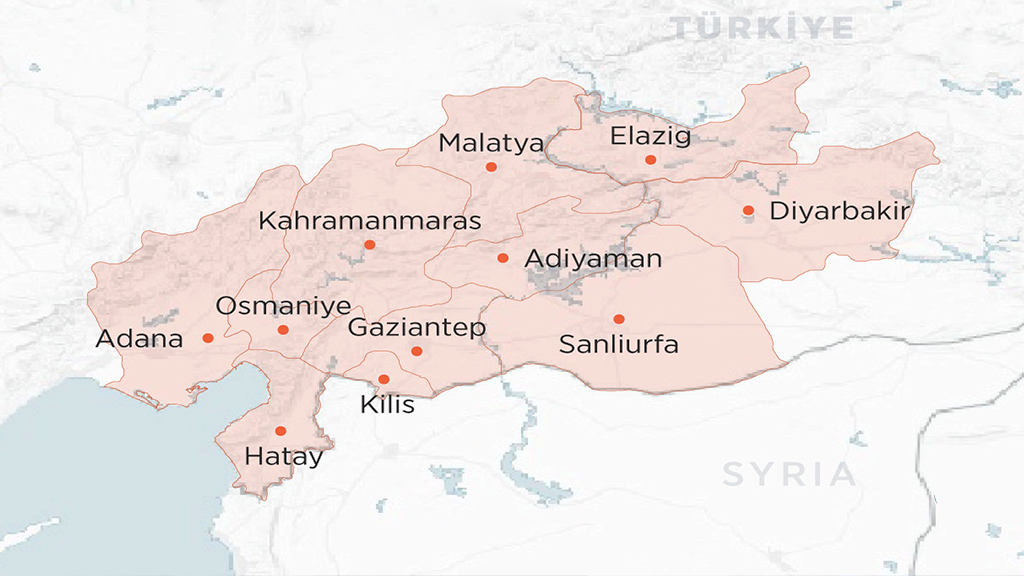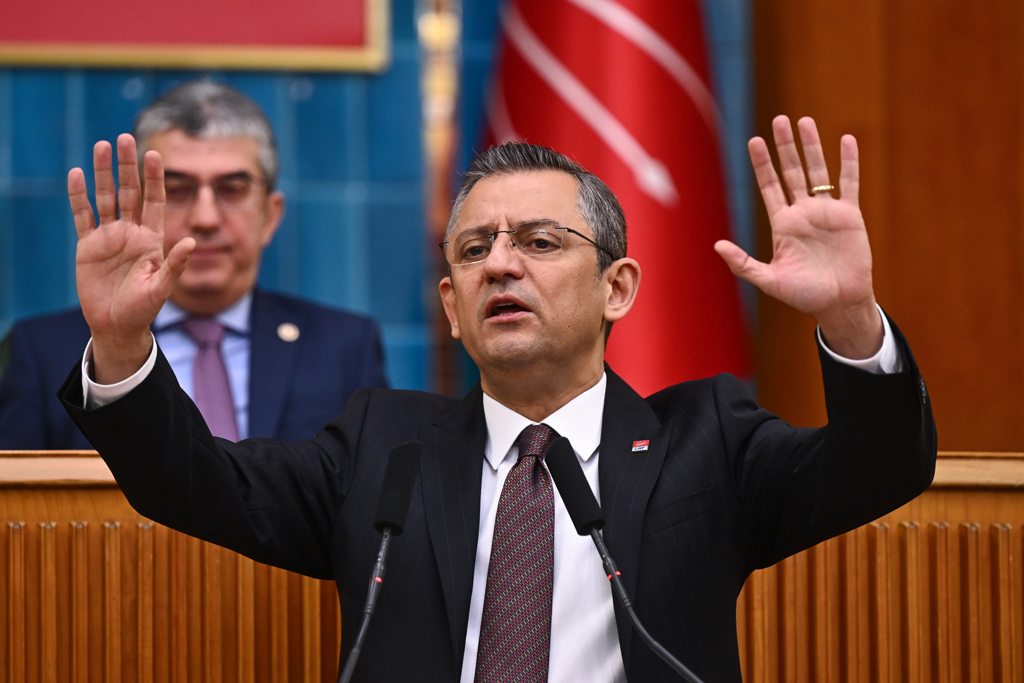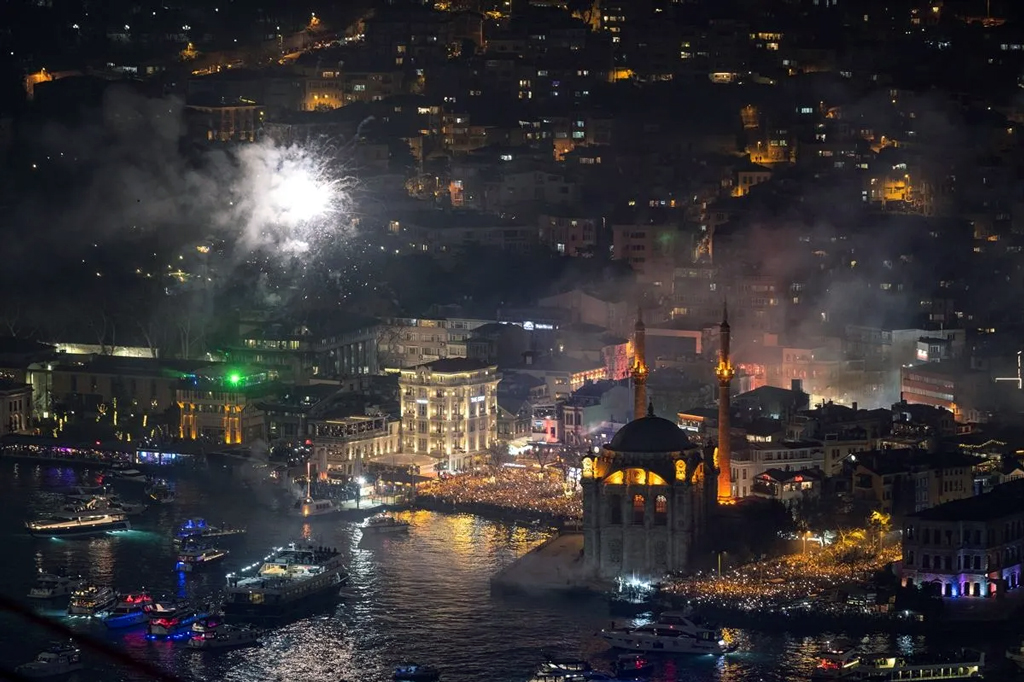Türkiye experienced two major earthquakes on February 6, 2023. Tens of thousands of people lost their lives in Kahramanmaraş, Gaziantep, Şanlıurfa, Diyarbakır, Adana, Adıyaman, Malatya, Osmaniye, Hatay, Kilis and Elazığ – where the massive catastrophe left more than 100,000 people injured. The Turkish people remain devastated by what happened. I would like to take this opportunity to offer my condolences.
Government agencies, the military, municipalities, nongovernmental organizations (NGOs), and private citizens mobilized to assist communities across the 11 provinces the disaster affected. As President Recep Tayyip Erdoğan stressed, it was time for “85 million hearts to beat as one” and all citizens to join forces. At the same time, more than 80 countries shared Türkiye’s pain and participated in relief efforts in the aftermath of this Level IV disaster.
I was in Adapazarı during the 1999 Marmara earthquake. I know how crushingly helpless one feels while standing next to collapsed buildings and waiting for rescue. I have been unable to forget how each aftershock served as a reminder of that horrible noise that we heard in the middle of the night, putting our hearts under duress. Yet the generosity of ordinary people, who immediately hit the road to help others, remains a special memory. I also recall how long it took to heal the trauma of that catastrophe.
In the wake of the most recent earthquakes, it was important for government agencies to launch search and rescue efforts without delay. As expected, Cabinet ministers personally oversaw relief efforts in earthquake-stricken provinces. It was also important for politicians to express solidarity at that difficult time. After all, the effectiveness of government agencies in crisis management is an achievement for which the entire country would take credit.
Times of disaster represent a test. Sharing the pain of traumatized citizens and healing their wounds must be everyone’s top priority.
It is necessary to stress that this is a time for the entire nation to manage the crisis that we face. It is time to heal wounds and rebuild cities.
The comprehensive transformation in Turkish cities must be completed to prevent future disasters. At the same time, I believe that those folks, who immediately began to exploit the earthquakes to fight ideological battles, suffer from a severe crisis of morality.
The State’s Immediate Reaction
Witnessing the intense relief efforts in Kahramanmaraş restored my faith in our country’s ability to heal everyone’s wounds swiftly. Indeed, relief efforts by government agencies and private citizens continue to gain momentum. With tents and container homes being made available to survivors, the effective distribution of aid emerged as a major issue.
I would like to share some points regarding disaster management based on what I have seen in Kahramanmaraş. Effective process management is needed in the earthquake’s immediate aftermath as well as in the medium and long term. To ensure rapid recovery, it is necessary to address problems without delay, restore normal urban life, and make plans to build a safer future for all cities. The authorities must take all those steps simultaneously and in a coordinated manner.
Offering psychological support to families and individuals, addressing the need for prosthetic implants, and rehabilitating disintegrated households are among the main short-term issues. Likewise, it is necessary to rebuild public spaces in city centers, help factories resume their operations, and provide education to students in safe buildings to gradually restore a sense of normalcy in earthquake-stricken areas. That is why President Recep Tayyip Erdoğan has been visiting the disaster zone, coordinating relief efforts, and sharing updates with the public. The government’s decision to declare a state of emergency for three months was intended to maximize the safety and effectiveness of short-term disaster management. There is no doubt that Türkiye’s government agencies, private sector, and nongovernmental organizations have what it takes to heal the wounds.
There are several mid-term steps that the authorities will take between the third month and the earthquake’s first anniversary. Demolishing all buildings with considerable or severe damage, building permanent housing units in safe places, transforming the lots of collapsed buildings in urban centers into green spaces, and facilitating the return of residents who relocated due to the disaster immediately come to mind.
To ensure that new buildings in the earthquake-stricken area comply with disaster-oriented city plans and are constructed with disaster-resilient methods, the current level of awareness must not diminish. The authorities must take radical steps regarding zoning in the short run and implement those decisions in the medium and long term. Quick recovery is needed, but all precautions need to comply with long-term disaster management goals. Last but not least, the relationship between the state, municipalities, and citizens must be built on earthquake awareness.
Across all disaster-prone parts of Türkiye, starting with the 11 provinces that the tremors devastated, the authorities and civil society must embrace disaster preparedness as a lifestyle in all areas, from education to urban renewal. The fiercely contested 2023 elections in the country threaten to steal the spotlight from disaster management – an issue that is closely related to everyone’s future. It is important to note that
voters would punish any attempt of politicians to exploit the earthquakes (which affected a massive area and have been described as the “disaster of the century” by the national and international media) to score political points. There is a fine line between recommending future steps and exploiting the Turkish people’s suffering while pretending to identify those responsible. Unfortunately, some members of the opposition crossed that line pretty quickly.
Is ‘Earthquake Politics’ a Thing?
The Turkish people have no choice but to uphold the spirit of solidarity to heal their wounds and rebuild their devastated towns in the wake of the worst disaster in the republic’s history. We must continue to deliver aid to affected communities, but a dynamic model is needed to address current needs in the earthquake-stricken provinces.
We need to promote disaster preparedness across Türkiye and adopt disaster-aware policies to rebuild all cities. That none of the Housing Development Administration (TOKİ) buildings collapsed in the earthquake zone is a positive sign.
Undoubtedly, the great catastrophe, which affected approximately 14 million people, will impact Türkiye in many different ways. Politicians and the media will inevitably criticize the state, the government, and decision-makers. After all, assessing the level of preparedness and the administration’s post-disaster performance falls within the scope of politics. It is also normal for the opposition to question the government. We are compelled to respectfully bow to the anger that earthquake-affected citizens, who lost their loved ones, are experiencing. Politicians have a responsibility to confront that anger and do everything in their power to alleviate people’s pain.
Notwithstanding,
three extreme developments have taken place since the twin earthquakes in Kahramanmaraş:
- The dissemination of false claims on social media,
- Baseless and racially motivated accusations against Syrians,
- Subversive political comments painting the state and public institutions as the enemy.
There was an attempt to utilize those tools and combine them with anti-Erdoğanism among the opposition ranks or in the international media to fuel “fresh political rage” ahead of the upcoming elections. In other words, some groups wanted the nationwide mourning to give way to a destructive flood of anger.
That is why countless lies have spread on social media platforms regarding the physical condition of hospitals and dams, the involvement of soldiers in disaster relief, and looters and Syrian asylum-seekers. That campaign, which aims to exploit human emotions, has been amplified by groups that support the Gülenist Terror Group (FETÖ) and the PKK terrorist organization.
In the wake of such a great catastrophe, one cannot reasonably expect such organizations, which inflicted severe damage to Türkiye, to attempt to legitimize themselves. Likewise, politicians striving to channel popular outrage over the earthquakes against Syrians, who experienced the same pain, proved to be enemies of our country.
To argue that describing what happened as the “disaster of the century” (despite the obvious devastation) as an attempt to relieve the government of responsibility by “exaggerating the incident through perception management” is also unfair to Türkiye and its population.
For example,
Kemal Kılıçdaroğlu, the Republican People’s Party (CHP) chairman, refused to contact President Erdoğan in the wake of that terrible disaster – unlike the leaders of right-wing parties, with whom he collaborated – for “politicking.” Ironically, that was textbook partisanship and self-marginalization. It was certainly possible to express solidarity and criticize the government. Kılıçdaroğlu has softened his tone due to mounting criticism, but his position remains pretty close to the Peoples’ Democratic Party (HDP).
Indeed, HDP’s co-chairman, Mithat Sancar, did not hesitate to criticize the government’s disaster response as follows: “What this government does best is to organize evil. This government is most skilled at organizing evil.” Interestingly, he did not forget to recognize the PKK terrorist organization’s post-disaster decision to pause its violent attacks as an “important step” while describing the Turkish government as “organized evil.”
It is one thing to question the political system or scrutinize politicians. Exploiting anger to portray the state and public institutions as the enemy, however, has nothing to do with politics. That should be described as radicalism, marginalization, and subversion.
Disaster of the Century and the Upcoming Elections
Everyone expected the 2023 election campaign to be particularly intense, polarizing, and full of accusations due to the importance politicians attached to the contest. Judging by the political elite’s initial response to the earthquakes, the campaign will be all the more fierce. Some level of polarization is inevitable around elections, but the current situation threatens to erase the lessons learned from the earthquakes due to the political tug-of-war. In this sense, the entire political establishment – including the government and the opposition – has the responsibility to rebuild the affected areas and to prepare our country for future risks and disasters.
Kılıçdaroğlu was the first politician to problematize the relationship between earthquakes and politics. Just two days after the disaster, he recorded a video in Hatay to announce that he “refused to treat what happened as above politics and to align with the government.” He added that he would never meet President Erdoğan “on any platform.” In doing so, the main opposition leader embraced the hateful and polarizing rhetoric rampant on social media platforms. Indeed, even his partners around the
Table for Six proved unwilling to endorse his position. The only politician to praise Kılıçdaroğlu’s views was Selahattin Demirtaş, the former HDP chairman, who described it as a “powerful political stance.”
Would it have been “above politics” to engage with Erdoğan – just for the sake of national sovereignty following an earthquake? Would such an engagement have weakened the CHP’s political position? The answers do not matter anymore. Kılıçdaroğlu, who revived the “above politics” controversy on February 21, shall never stop hearing that he assumed a “partisan” position in the disaster’s immediate aftermath – just like the subversive disinformation campaigns on social media. After all, the main opposition leader lit the fuse of polarization by opting to fire the first salvo, assuming that such accusations were inevitable.
“Above politics” typically refers to “not pursuing party interests at the expense of the interests of the state or the nation.” It may be a worn-down idea, but it does not actually exclude any political activity. It merely urges the opposition to act responsibly by looking out for national security interests. Türkiye must not lose sight of reality amid earthquake-related accusations on the campaign trail. We have no choice but to prepare our country, which experiences disasters and earthquakes, for future risks and disasters. To make such comprehensive preparations, we require a consensus between individuals, society, the state, and the political establishment. There is a long to-do list, ranging from the quality of concrete and geological studies to not destroying load-bearing columns and emergency urban renewal. That is why all parties and candidates need to agree on “high politics” while competing against each other.








